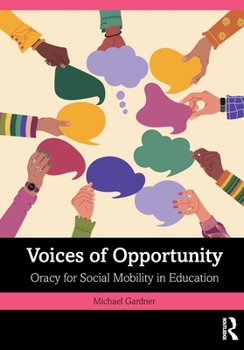Voices of Opportunity: Oracy for Social Mobility in Education
In this book, the vital role of language in shaping the life chances of children from contrasting ends of the social ladder is explored. Grounded in the latest research and the contemporary experiences of educators, it highlights how oracy is a key driver of upward social mobility, especially for the most disadvantaged children.
Drawing on case studies, classroom practice and academic research, the book examines the widening language divide that emerges in early childhood and continues to grow throughout the educational journey. It contrasts the experiences of children from language-rich upbringings with those from language-poor backgrounds, showing how these differences affect access to learning, emotional well-being and future life opportunities. Topics include the emerging word gap for under-threes, the importance of vocabulary development, the power of oracy for emotional regulation and the barriers to career choices that result from poor language skills. The book also unpacks the evolving policy landscape, highlights organisations championing oracy nationwide and reflects the growing optimism surrounding language development for the future.
This book is valuable for educators and school leaders seeking to understand the connection between oracy and social mobility. It offers practical strategies, tangible actions and clear next steps for embedding oracy into schools.





